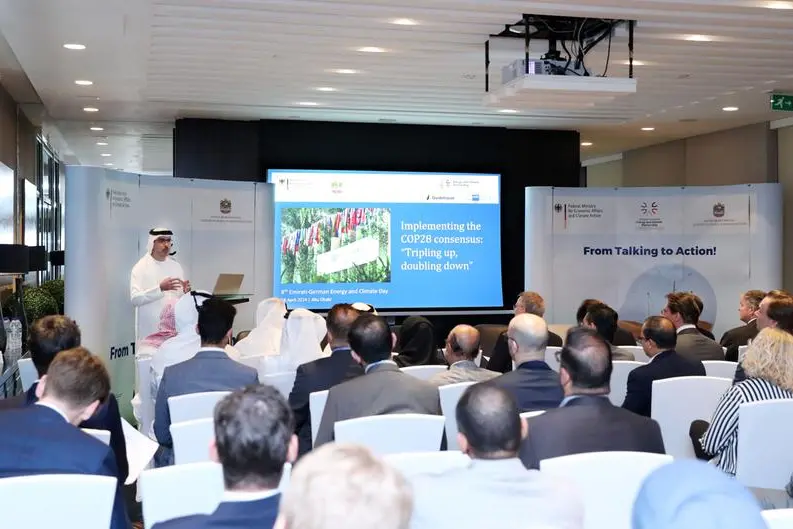PHOTO
The Emirati-German Energy and Climate Partnership, an initiative between the UAE Ministry of Energy and Infrastructure (MoEI) and the German Federal Ministry for Economic Affairs and Climate Action (BMWK), held its 8th High-Level Steering Group Meeting with the aim of identifying topics for collaboration and activities to be implemented in the framework of the Partnership during the year 2024.
Sharif Al Olama, Under-Secretary for Energy and Petroleum Affairs at MoEI, led the UAE side, and Stefan Wenzel, State Secretary at BMWK, led the German side.
The meeting was attended by Dr. Nawal Al Hosani, Acting Assistant Under-Secretary for the Climate Change and Green Development Sector at the Ministry of Climate Change and Environment and Permanent Representative of the UAE to the International Renewable Energy Agency, Mohammed Abdelqader El Ramahi, Chief Green Hydrogen Officer at Masdar, and several representatives of the public and private sector from both sides.
Al Olama said, “The UAE and Germany share a steadfast commitment to sustainable development, a passion for innovation, and an eagerness to embrace future trends. This long-standing relationship captured in the Emirati-German Energy and Climate Partnership offer an ideal platform to explore potential synergies and promote dialogue between stakeholders from industry and public sector of both countries.”
Stefan Wenzel said, “I congratulate the UAE for the historic COP28 Consensus with the ambitious global targets for renewables, energy efficiency, and phasing out of fossil fuels. Our bilateral Energy and Climate Partnership is the ideal platform to get from talking to action, to exchange knowledge and experience and to deliver on our global COP 28 commitments.”
The two sides set out four workstreams for the meeting and proposed a set of activities under each of them to further accelerate the energy transition and climate action in the UAE and Germany.
The workstreams included hydrogen and sustainable aviation fuels (SAF), where they highlighted the need to create enabling policy and regulatory frameworks for hydrogen and SAF value chain via the bilateral Hydrogen Task Force, renewable energy and system integration, where they stressed on the importance of enabling investment in renewable energy projects to triple capacity by 2030, climate, where they will exchange knowledge on carbon pricing and carbon capture, utilisation, and storage (CCUS), and private sector engagement, where they will promote innovative start-ups and link them to potential investors and funding schemes.
Following the High-Level Steering Group Meeting, the two sides held the eight Emirati-German Energy and Climate Day recurring in the World Future Energy Summit titled “Implementing the COP28 Consensus: Tripling up, Doubling down” to explore the implications of the COP28 Consensus for the UAE energy transition and steps taken by Germany to implement the Consensus.





















